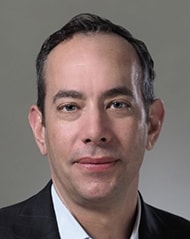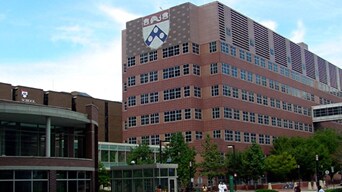At a glance
View the Penn Injury Science Center's (PISC) ICRC profile and grantee research projects. ICRCs to study ways to prevent injuries and violence and to work with community partners to put research findings into action. They focus on three core functions: research, training, and outreach.
Contact Information

Name: Perelman School of Medicine at the University of Pennsylvania
Director: Zachary F. Meisel, MD, MPH, MSHP
Address: Blockley Hall 4th Floor, 423 Guardian Drive, Philadelphia, PA 19104-6021
Phone: 215-746-5618
Email: zfm@pennmedicine.upenn.edu and mcdonalc@nursing.upenn.edu
Website: https://www.penninjuryscience.org/
X: @PennInjury
Instagram: https://instagram.com/penninjury
Youtube: https://www.youtube.com/@penninjury
Overview

The Penn Injury Science Center (PISC) has been a comprehensive Injury Control Research Center funded by the CDC since 2019 after starting as a developmental center in 2017. PISC's mission is to reduce injuries and violence across the lifespan through equity-centered, actionable science, outreach, and education. The Center’s slogan, "Stop It, Fix It, Live On”, focuses on primary, secondary, and tertiary injury and violence prevention goals, and signals its commitment to addressing social and structural conditions contributing to disparities in injury and violence through solid community, academic, and government partnerships.
Goals
- Reduce injuries and violence across the lifespan through equity-centered, actionable science, outreach, and education.
- Generate impactful science to address the burden of injury among low-resourced populations.
- Support an increasingly diverse and integrated cohort of faculty and trainees across the University.
- Develop and strengthen critical community and public partnerships.
- Address social and structural conditions that contribute to pervasive disparities in injury and violence in Philadelphia and beyond.
Advancing Injury and Violence Prevention
- Opioid Overdose
- Cross-Cutting Violence Prevention and Youth Violence Prevention
- Adverse Childhood Experiences
- Transportation Safety
- Traumatic Brain Injury
2019 ICRC Grantee Research Projects - PISC
Core Research Projects
- Adverse Childhood Experiences and Cross-Cutting Violence Prevention
- Cross-Cutting Violence Prevention
- Overdose Prevention and Falls Prevention
- Adverse Childhood Experiences
Outreach Core
The PISC's Outreach Core fosters meaningful partnerships with Philadelphia residents and communities through innovative strategies that facilitate community-led solutions to injury and violence prevention. Key activities include maintaining an active Community Action Board (CAB) and implementing the Community Outreach Incubator. The Incubator invites CAB members to propose a solution that is then workshopped to a prototype and proposal. The Outreach Core provides technical assistance and dissemination to clinical, community, academic, and government stakeholders.
Training and Education Core
The PISC's Training and Education Core focuses on developing the next generation of injury prevention researchers and practitioners through various innovative programs. Key activities include the Trainee Learning Lab (TLL). The TLL connects trainees across ICRCs and universities with guest authors to learn about injury science expertise and the Injury Science Incubator. The TLL provides a collaborative learning environment for germinating new ideas and refining research proposals. The Training and Education Core also supports diverse trainees through programs like the Summer Undergraduate Minority Research Scholars, Injury Science Research Experiences for Undergraduates, and mentoring opportunities for PhD students, postdoctoral fellows, and early career faculty, with an emphasis on supporting underrepresented minority scholars across the career development spectrum.